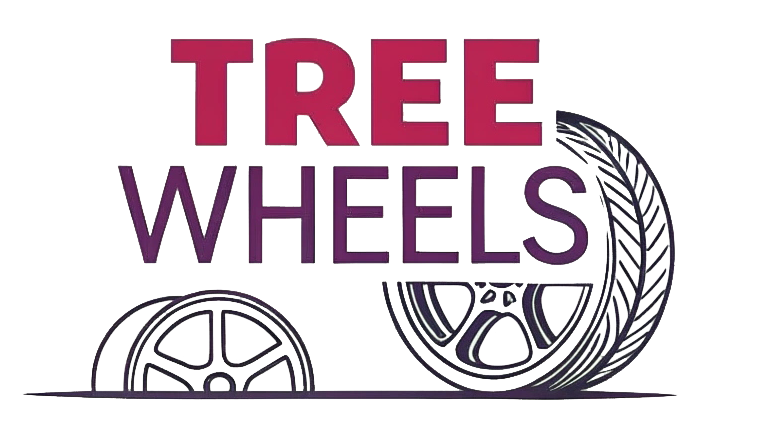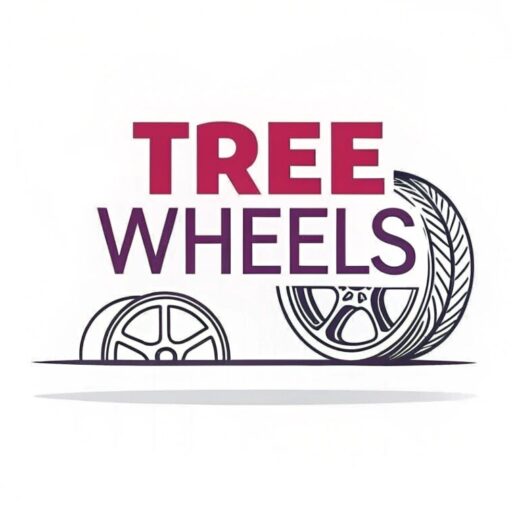When you're picking wheels, you're not just choosing style—you're choosing how your car feels, performs, and holds up. The wrong type can mean poor handling or wasted money.
There are four main types of rims based on material: alloy, forged, steel, and carbon fiber. Each has different strengths and suits different driving needs.

Most people never think twice about their rims. But the type you choose can change your ride’s weight, performance, and even safety. Whether you drive for speed, snow, or style, different rims match different roads. Keep reading to see what fits your drive best.
What are the different types of car rims?
Most car owners think wheels are just round metal discs. But rims come in different types, each made for specific functions and looks.
The main types of car rims are cast alloy, forged alloy, steel, and carbon fiber, with cast and forged alloy rims being the most popular for everyday and performance use.

Cast Alloy Rims
Cast alloy rims are made by pouring molten aluminum into molds. This method allows for complex designs and lower production costs. These rims are usually lightweight and stylish, making them ideal for daily drivers who want decent performance and good looks. They're affordable, but more likely to crack under high impact.
Forged Alloy Rims
Forged rims are crafted from a single piece of aluminum under extreme pressure. This process makes them stronger and lighter than cast rims. They're often used in sports and modified cars. The downside is price—these are usually more expensive due to the labor and material quality involved. If you're into custom designs and high-speed driving, forged rims are the best bet.
Steel Rims
Steel rims are heavier and less attractive than alloy rims. But they’re tough and cheap. People in cold climates often switch to steel rims for winter driving, since they handle snow and salt better. These rims are all about function over form. They’re common in older vehicles or base models.
Carbon Fiber Rims
Carbon fiber is the cutting-edge material for wheels. It’s incredibly light and strong but comes with a premium price tag. You’ll mostly see these on supercars, racing bikes, or in aerospace. While rare in everyday cars, carbon rims offer the best performance in terms of weight reduction and stiffness.
What are the most common car rims?
Not all wheels are created equal. But some dominate the streets, garages, and racetracks more than others.
The most common rims on modern vehicles are aluminum alloy wheels—mainly cast aluminum for regular cars and forged aluminum for modified or performance vehicles.

Why Alloy Wheels Rule the Roads
Aluminum alloy wheels strike the best balance between cost, performance, and looks. Cast aluminum rims are everywhere—from compact sedans to family SUVs. They offer better fuel economy than steel and a nicer finish too.
The Rise of Forged Rims in Car Mods
For the enthusiast crowd, forged aluminum rims are becoming more popular. They’re stronger, lighter, and often come with premium styling options. Modified car shops recommend forged wheels to reduce weight and increase speed and safety at higher speeds.
What About Steel?
Steel rims still have their place, especially in snowy or icy regions. They're common as winter wheel sets and for budget-focused drivers. But outside those use cases, they’re no longer the first choice.
What are the three types of wheels?
Ask any wheel expert, and they'll break things down into a few clear categories based on construction.
The three main types of wheels are one-piece wheels, two-piece wheels, and three-piece wheels, each offering different levels of customization and performance.

One-Piece Wheels
These are made from a single solid piece of material, usually aluminum. They're lighter and stronger than multi-piece wheels in many cases. Most factory-installed and aftermarket wheels fall into this category because they’re easy to produce and install.
Two-Piece Wheels
Two-piece wheels combine a separate rim and center section, often bolted together. This design allows for more styling and fitment options. They’re popular in the performance and luxury segments because they let you tweak offset and width without going full custom.
Three-Piece Wheels
These are the holy grail for customization. They consist of a center, outer barrel, and inner barrel—all bolted together. You can fine-tune everything from width to finish. Three-piece wheels are often used in car shows or high-performance builds. They're more expensive and may need more maintenance, but the flexibility is unmatched.
What type of rims last the longest?
Longevity isn’t just about material. It’s also about how and where you drive. But some rim types definitely hold up better than others.
Forged aluminum wheels tend to last the longest due to their strength and resistance to cracking, even under high stress.

Why Forged Rims Outlive the Rest
The forging process makes these wheels incredibly dense and strong. Unlike cast or steel wheels, they don’t crack as easily. Instead, they may bend slightly under impact, giving you a chance to fix them rather than replace them.
Steel is Tough, But Heavy
Steel rims are also very durable. They can take abuse, especially in bad road conditions. But they rust over time and add extra weight, which can affect fuel economy and handling.
Cast Rims Are Cheaper, But Not as Durable
Cast aluminum rims look good and cost less. But under stress, they can crack or chip, especially on bad roads or during winter. If you drive in ideal conditions, they’ll last. Otherwise, they’re more prone to damage.
Carbon Rims Need Care
Carbon fiber rims aren’t built for rough roads. They offer great performance but are more sensitive to impact. If you're racing, they’re perfect. But for everyday roads, they need extra care and attention.
Conclusion
Different rims suit different drivers. For strength and lifespan, forged aluminum wins. For budget and winter, steel still works. Cast aluminum offers the best value overall.
TreeWheels specializes in forged wheels built to last—crafted for performance and made with sincerity.



